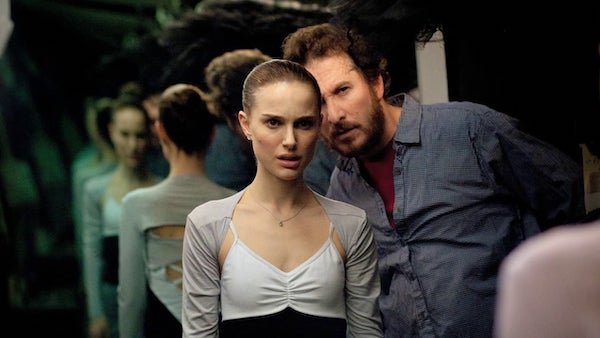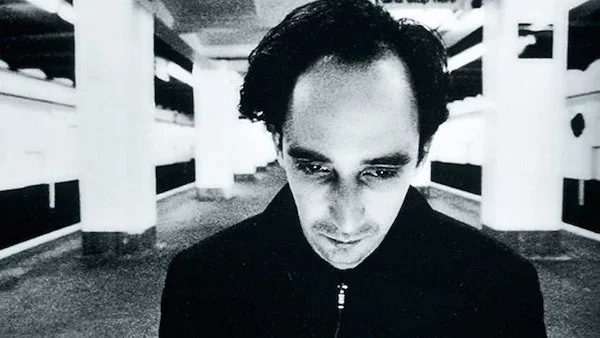Stick To The Script: 'Sorry To Bother You' Revisited
Radical market swings … wage inequality … the deterioration of the middle class … conversations about capitalism have only become more fraught in the five years since Sorry To Bother You first premiered at the 2018 Sundance Film Festival. Firebrand social activist/first-time filmmaker Boots Riley sidestepped the modesty of most directorial debuts and burst onto the scene with a bold, defiant satire that amplified a wide range of social criticisms that have become more ubiquitous in modern culture.
The film introduces us to Cassius “Cash” Green (Lakeith Stanfield), an existentially-minded young black man from Oakland struggling to afford rent and find a sustainable means of income. After landing a gig as a telemarketer, he’s thrust into a bizarre web of conspiracy as he climbs the corporate ladder. Playful in nature, the film’s flamboyant edge has a funhouse mirror-like quality that distorts reality while calling attention to the flaws inherent in the way infrastructures decide how power is allocated in America.
Since 2018, these unfortunate truths have spilled deeper into our national discourse, shedding light on the uneven distribution of wealth in American society, especially with respect to marginalized communities. It’s resulted in an increased awareness around institutionalized racism, gentrification, and predatory work ethics — all recurring motifs that are targeted in Boots Riley’s Sorry To Bother You, an absurdist comedy with alarming relevance in 2023.
“In trying to avoid cliché, I realized that if I bent the reality of the world, it actually drew attention to that parallel point in our actual reality.”
Boots Riley | TIME
The madcap odyssey begins at the threshold of RegalView, a crusty marketing firm with a small office ambiance set by dull aesthetic composition: walls coated in a revolting shade of blue, whiteboard scrawled with daily metrics and bad motivational quotes, and an antiquated coffee dispenser — pay per cup, of course. During work hours, the energy buzzes around columns of cramped cubicles populated by a swarm of entry-level staffers. They grind out forty hours a week, cold-calling prospects to sell an assortment of solutions supplied by a controversial labor-for-housing enterprise known as WorryFree.
To fully grasp the scope of their profession, one must learn the implicit understandings embedded in the culture of telemarketing. When your paycheck depends on an unwelcomed phone call, you need to forge a vocal identity that sometimes demands certain aspects of your individualism be suppressed, or risk facing the cold sting of rejection. Especially so in such disproportionately non-diverse environments, in accordance to a 2021 study by the Bureau of Labor Statistics which shows that 78% of sales professionals are white, compared to the nominal 18% who are Latinx, 13% black, and 5% Asian.
After Cash settles in and struggles to find his groove, he embellishes an overly cheerful white accent (voiced by David Cross) at the suggestion of an older co-worker played by Danny Glover. This proves highly profitable for Cash; but by suppressing a strand of his own identity, he unwittingly surrenders the rights to his own humanity, an illustration of the film’s foundational thesis that argues the existence of a rapidly dissolving line that separates commerce and slavery.
This provocative idea comes to fruition in a shocking third-act revelation when our protagonist is invited to a mansion party hosted by WorryFree’s coke-addled CEO, played by Armie Hammer. While searching for the bathroom, Cash descends into a mysterious laboratory only to find workers that have been subjected to cruel experimentation, turning them into equisapiens, or human-horse hybrids. Although a little on-the-nose, this gonzo distortion of realism bends our perspectives around the oppressive nature of capitalism, especially with regard to disenfranchised classes.
While Sorry To Bother You is best described as an absurdist comedy, the equisapiens are tragic figures that are reminiscent of “body horror”, a subgenre that explores sympathetic creatures with grotesque features. Often examining people who enter a downward spiral after suffering hideous physical transformations, the subgenre’s imagery functions as an allegory for the fear of unintended ways that circumstances can mis-shape us.
Despite its playful energy, the film has deeper intentions rooted in this pairing of genres. Consider the equisapiens; after being forced to undergo cruel operations by an employer that promised housing in exchange for grunt labor, they become caricatures of real-life victims in the fight for equality in the workplace, a symbol for the working class. This amplifies the core tension of Sorry To Bother You between the few in charge and the rest whose lives depend on a steady income. The latter is represented cinematically by supporting character Squeeze (Steven Yeun), a pro-union reformist.
After befriending Cash at RegalView, Squeeze sparks a revolution by organizing a group to advocate for wage increases and benefits packages for everyone on the payroll. This movement echoes with relevance in today’s society amid greater awareness surrounding the steeper-than-ever costs of living and the companies who fail to pay their workers accordingly. In taking such an aggressive stance against corporate toxicity, Riley injected Sorry To Bother You with an intense desire to reimagine the working class experience and frame it within the context of his work.
“You’re not going to change any of this by yourself. You’re not going to change it by making a cute art statement, you’re not going to change it by just figuring out how to be there, to do something that gives you more power on your own. You have to join with other people and make a movement.”
Boots Riley | Vox
As a protagonist, Cash has his own share of shortcomings. By appeasing his corporate executives and climbing the proverbial ladder, he reaps the benefits of “Power Caller” status despite urges from friends and colleagues to help them make a difference at RegalView. Regardless, the film takes measures to depict him as a figure worth your sympathy, a man caught in the crossfire between two conflicting ideologies.
Cash’s guide to recognizing this harsh truth is his girlfriend Detroit, played by Tessa Thompson, who during a contentious argument, points out the uncharacteristic traits he’s exhibited since becoming a Power Caller. Being a performance artist herself, Detroit is no stranger to betraying core principles for money; in a moment of weakness, Cash belittles her creative pursuits as “selling art to rich people”, an allegation that comes full circle at her latest showcase.
Entitled The New Fuck You, Detroit’s interactive art piece finds her onstage half-naked, reciting movie dialogue in a posh British accent while spectators throw blood balloons at her. While it pokes fun at the pretentiousness of modern art, it also spotlights the prevalence of sell-out culture in modern America. While society hurtles toward a future that prioritizes money over morals, Cash and Detroit are two flipsides of the same coin who do what they must in order to get by. By abstracting this cultural observation and fitting it to a world with exaggerated features, it allows us to see the nexus point in our own illogical timeline.
Toggling between surrealist humor and thought-provoking insight, Sorry To Bother You is a satire whose skewed realism has proven itself ahead of its time. Surveying the landscape of movies in 2023, the heightened sense of real-world panic has given way to a rise of escapist entertainment that ascends the boundaries of our own reality. From Jordan Peele’s Nope to the Academy Award-nominated Everything, Everywhere, All At Once, we live in a time where art reflects an existential worry masked with the boundless comforts of imagination.
In the footsteps of fellow Sundance filmmakers who came before him, Boots Riley blazed a path in a unilateral industry by pledging himself to unwavering originality. Over the span of five years, Sorry To Bother You has amassed a cult following and a renewed interest in the ways it dissected the landscape of American work culture. With a punk rock demeanor, it’s a supersonic rejection of norms and hierarchy that urges viewers to think more critically about the systems in place.




































